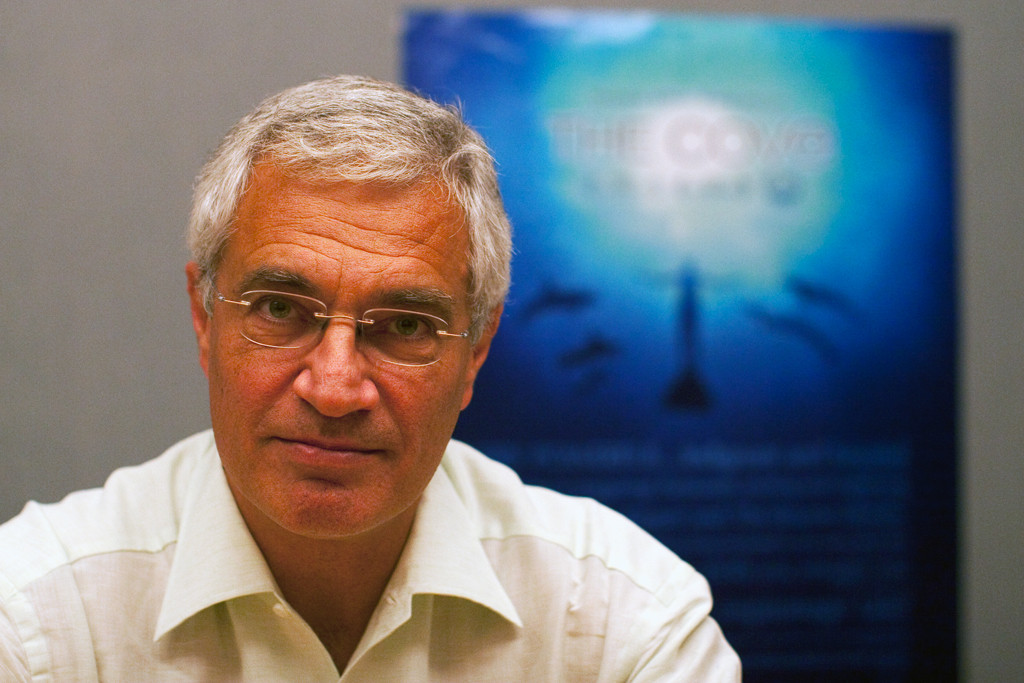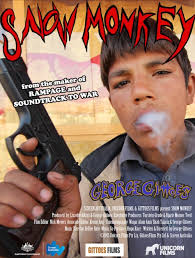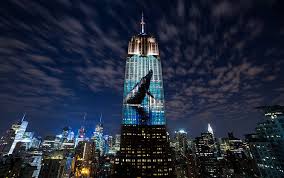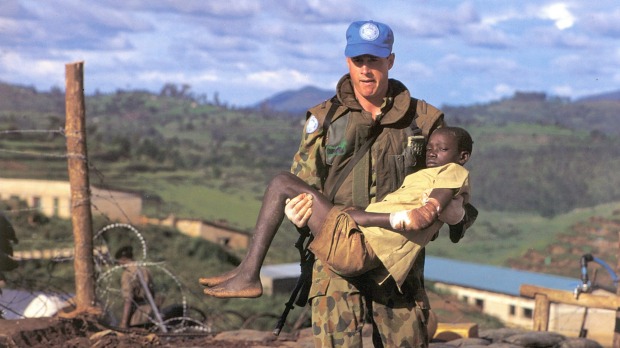George Gittoes won the Sydney Peace Prize. He makes art from war. He is passionate, intense and purposeful. His daughter, however, thinks he should chuck it all in and join Louie Psihoyos in making films trying to save the sea.
George did join Louie, on stage briefly, in a forum during MIFF. Also on the panel were Susan Lambert, director of Tyke, Elephant Outlaw and Nick Batsias the producer of That Sugar Film. The moderator was Malinda Wink, from Good Pitch. It was a fantastic gathering of minds and a real privilege to be in the audience.
George spoke about his film, SnowMonkey, and his work with The Yellow House, Jalalabad. He believes that documentaries are applied art, not fine art. He spoke of his horror of war and the never-ending personal effects of witnessing the Rwandan massacre in the 90s. His biography is fascinating and I remember hearing about the Sydney Yellow House in the 70s, and I saw it when they rebuilt it at the Gallery of NSW in the 90s.
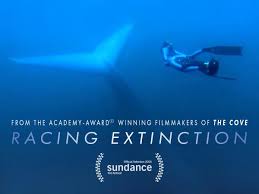 Louie, the director of The Cove and Racing Extinction and the Executive Director of The Oceanic Preservation Society, began by reminding us we are either activists or non-activists. He makes films that are weapons of mass construction. He says he’s not making a movie, he’s making a movement. (According to Paul Hawken, he’s one of many but that’s quibbling!) At the screening of Racing Extinction, Louie spoke of wanting to increase the circle of compassion and recommended Saving Species.
Louie, the director of The Cove and Racing Extinction and the Executive Director of The Oceanic Preservation Society, began by reminding us we are either activists or non-activists. He makes films that are weapons of mass construction. He says he’s not making a movie, he’s making a movement. (According to Paul Hawken, he’s one of many but that’s quibbling!) At the screening of Racing Extinction, Louie spoke of wanting to increase the circle of compassion and recommended Saving Species.
Racing Extinction will play to over a billion people on December 2nd 2015 via the Discovery Channel just prior to the
2015 United Nations Climate Change Conference
in the hope people will contact their politicians and make a difference.
Racing Extinction has been on my radar for months. From my jaded perspective of reading and writing about endangered species for over twenty years (Polyglot Puppet’s Not the end of the world premiered in 1995) I have to admit to slight disappointment in the film itself, mainly because of its lack of focus. The three acts could easily have been three films; the first an eco-thriller about undercover photographers in clandestine operations to expose illegal marketing of threatened species. Secondly, the story of an Indonesian fishing village encouraged to transform into a shark whale tourist destination and, finally, the brilliant story of passionate photographers projecting ghostly images of endangered (or extinct) animals across the landscape of New York.
Whatever, Racing Extinction is a wonderful film and I urge everyone to see it. It reminded me of another ambitious film, The Age of Stupid, which I also encourage you to see, despite its title. Both films, intensely entertaining and engaging, suffer from the makers trying to do too much. However, because I am aware of the issues (I am the choir) I may not be able to judge effectiveness in changing audience’s hearts and minds.
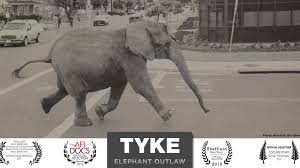 Tyke, Elephant Outlaw is a smaller film with one clear viewpoint and one leading character. One of the co-directors, Susan Lambert, spoke in the forum about the need to engage the audience’s hearts. Sometimes the film brings tears, sometimes it makes you laugh but if the makers can’t engage the audience, she suggested trying something else!
Tyke, Elephant Outlaw is a smaller film with one clear viewpoint and one leading character. One of the co-directors, Susan Lambert, spoke in the forum about the need to engage the audience’s hearts. Sometimes the film brings tears, sometimes it makes you laugh but if the makers can’t engage the audience, she suggested trying something else!
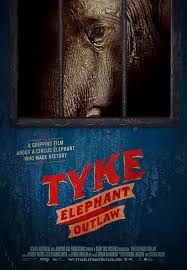 Tyke, Elephant Outlaw certainly engages, perhaps even too strongly. Perhaps we might have been spared some of the analysis, perhaps some of the more graphic footage might have been trimmed, but as Lambert describes their aim, the film wants to explore mankind’s relationship to other species through the story of one creature and they clearly succeed. The story of Tyke is grim viewing, a Blackfish for land animals. But that is our relationship to elephants, to other species, and the film makes it clear that that relationship is changing. Has to change.
Tyke, Elephant Outlaw certainly engages, perhaps even too strongly. Perhaps we might have been spared some of the analysis, perhaps some of the more graphic footage might have been trimmed, but as Lambert describes their aim, the film wants to explore mankind’s relationship to other species through the story of one creature and they clearly succeed. The story of Tyke is grim viewing, a Blackfish for land animals. But that is our relationship to elephants, to other species, and the film makes it clear that that relationship is changing. Has to change.
For George Gittoes, man’s inhumanity to man is at the heart of the battle but I believe all these great artists, Gittoes, Psihoyos, Lambert and Batsias are fighting the same war, trying to raise awareness of man’s essential destructive abandon. I think George can reassure his daughter he is working with Louie.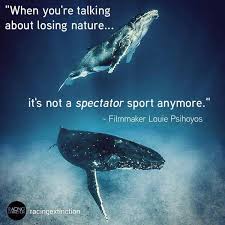
On mass, humans don’t know, don’t care and we are, beyond a doubt, destroying our only home and endangering the human race. The rock that is the Earth will survive us, of course, but there is no doubt, we are in a war, a war with ourselves as the enemy. Our ignorance and blindness to the effects of our actions on our neighbours is now, with over seven billion people on the Earth, completely catastrophic.
Will we wake up in time? Can the forces of captialism, corporate greed and elitism be splintered into individual beating hearts by the use of art?
Let’s join George, Louie and Susan and try.
<iframe width=”560″ height=”315″ src=”https://www.youtube.com/embed/GJtq6OmD-_Y?rel=0″ frameborder=”0″ allowfullscreen></iframe>

